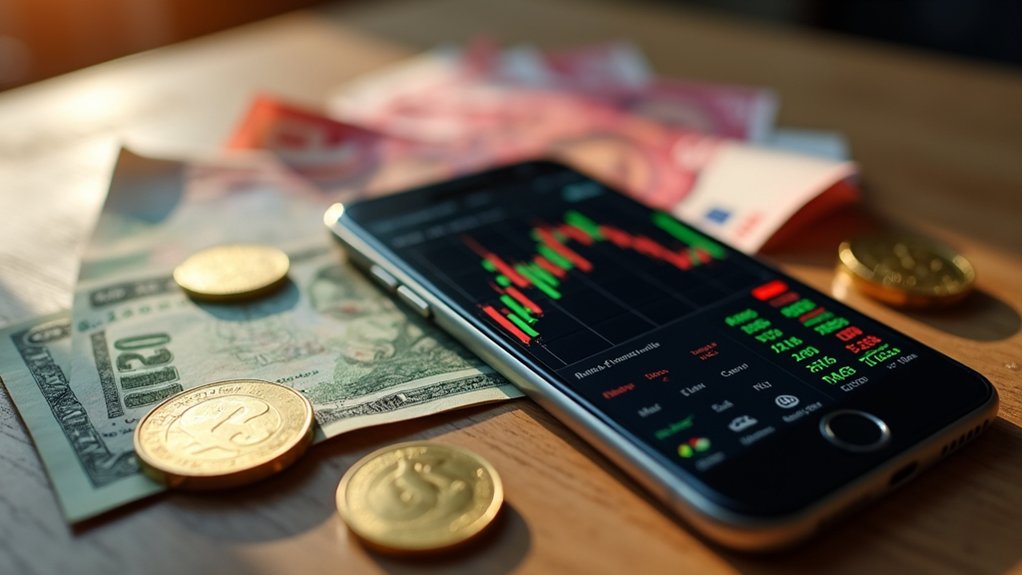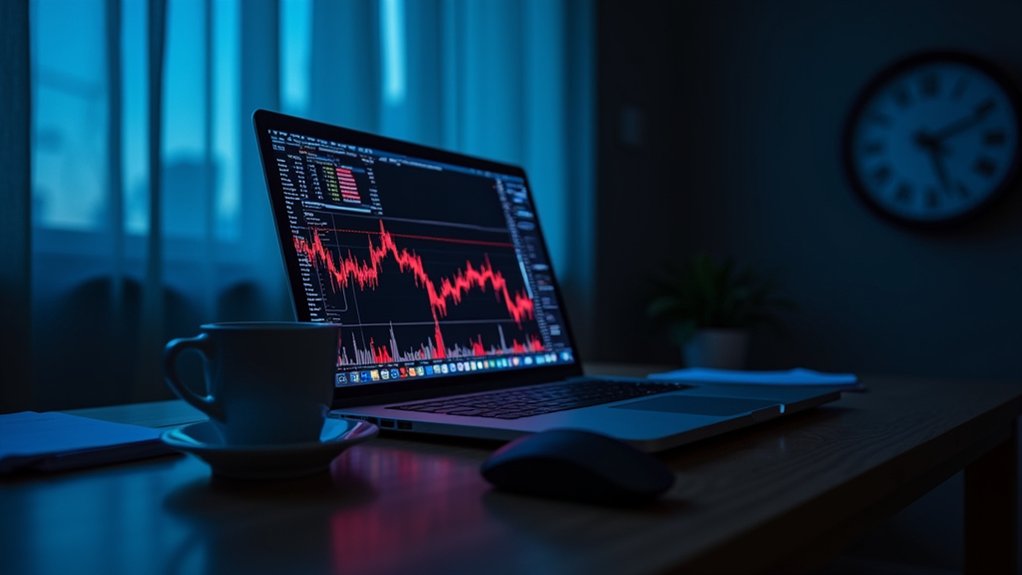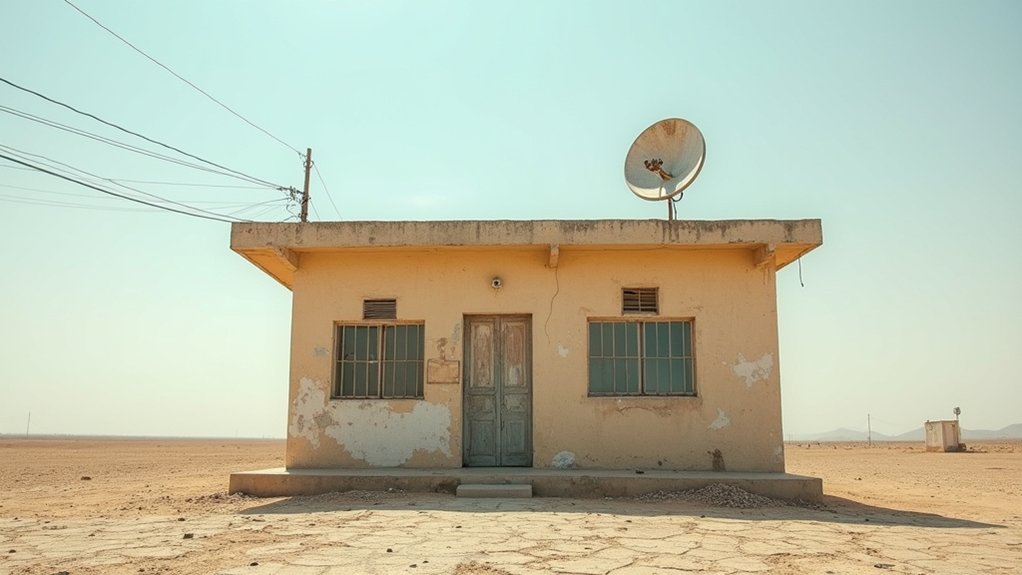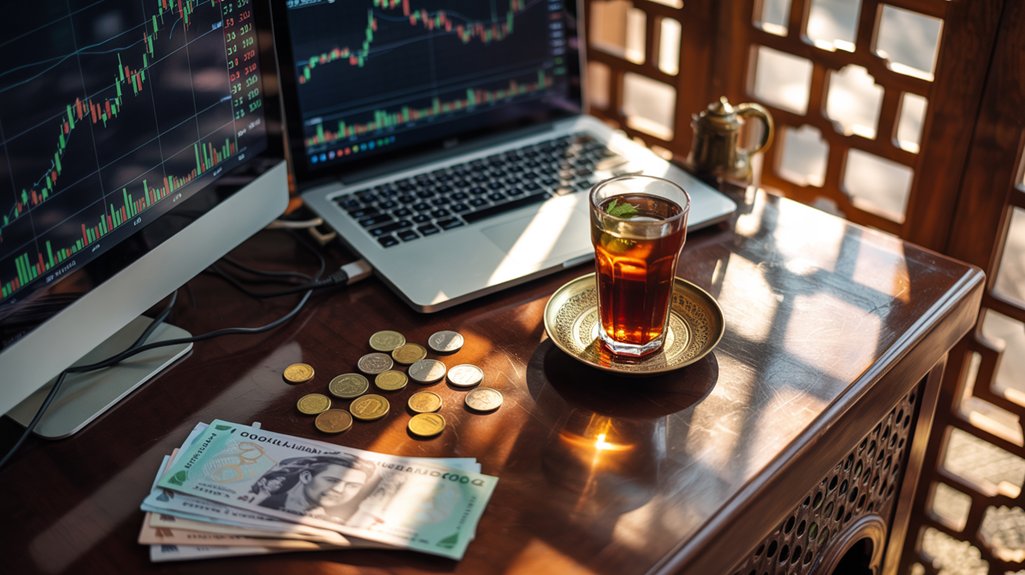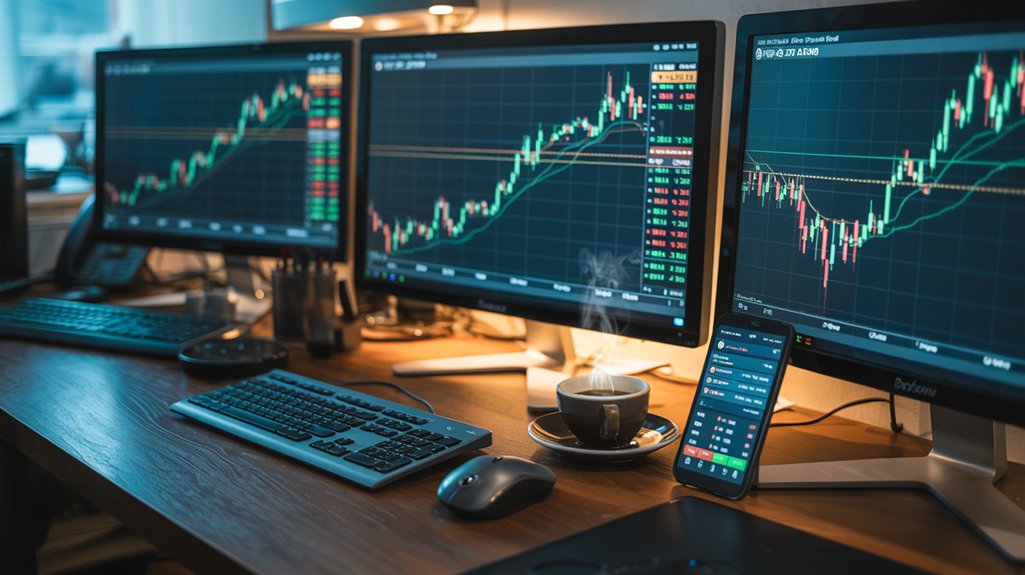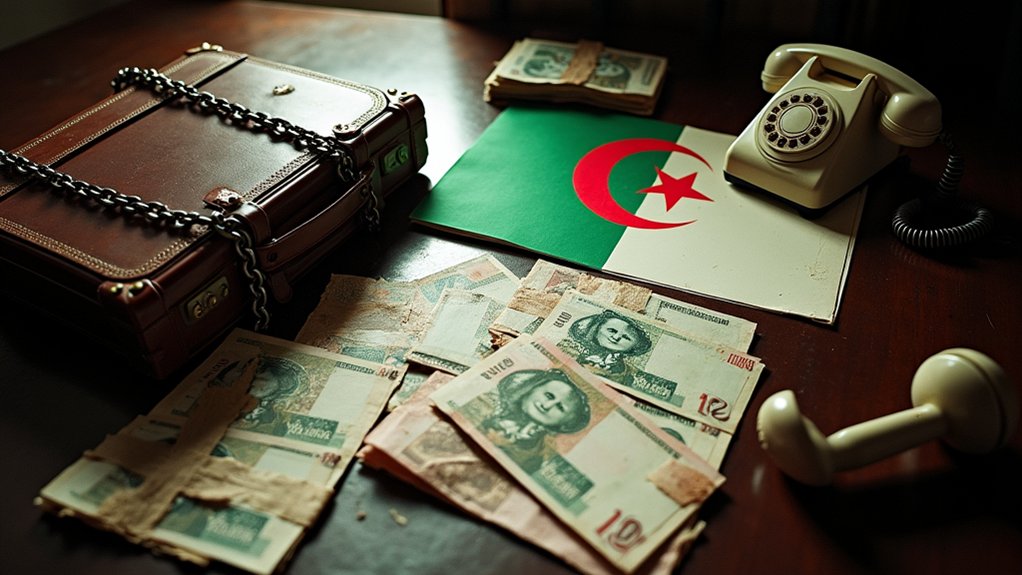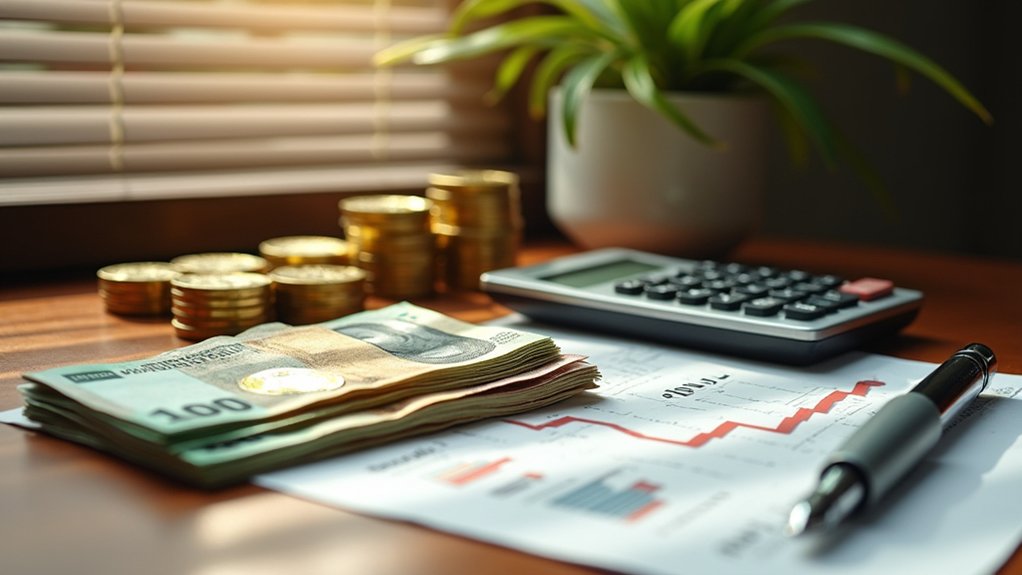Forex trading is legal in The Gambia because nothing says it isn't—which is pretty much the extent of official oversight. The Central Bank focuses on currency stability, not retail traders, so there's no local regulator licensing brokers or watching platforms. Gambians trade through international brokers licensed elsewhere (FCA, CySEC, ASIC), using MetaTrader on GMT timing with leverage that can wipe accounts fast. Deposits run $5 to $1,000 depending on the broker, withdrawals hit friction when dollars need converting, tax rules don't exist, and scams thrive in the regulatory vacuum.
Quick Facts That Matter
- Forex trading is legal in the Gambia but operates without dedicated local regulation or domestic broker licensing oversight.
- Gambians access international brokers offering MT4/MT5 platforms with leverage, low deposits, and payment options like e-wallets and crypto.
- Best trading hours are 13:00–16:00 GMT when London and New York sessions overlap, maximizing liquidity for major pairs.
- High risks include extreme leverage destroying accounts, withdrawal restrictions, escalating fake fees, and unregulated scam platforms with forged licenses.
- Verify broker regulation through FCA, CySEC, or ASIC websites directly; absence of legitimate licensing signals potential fraud.
Overview: Forex Trading in The Gambia
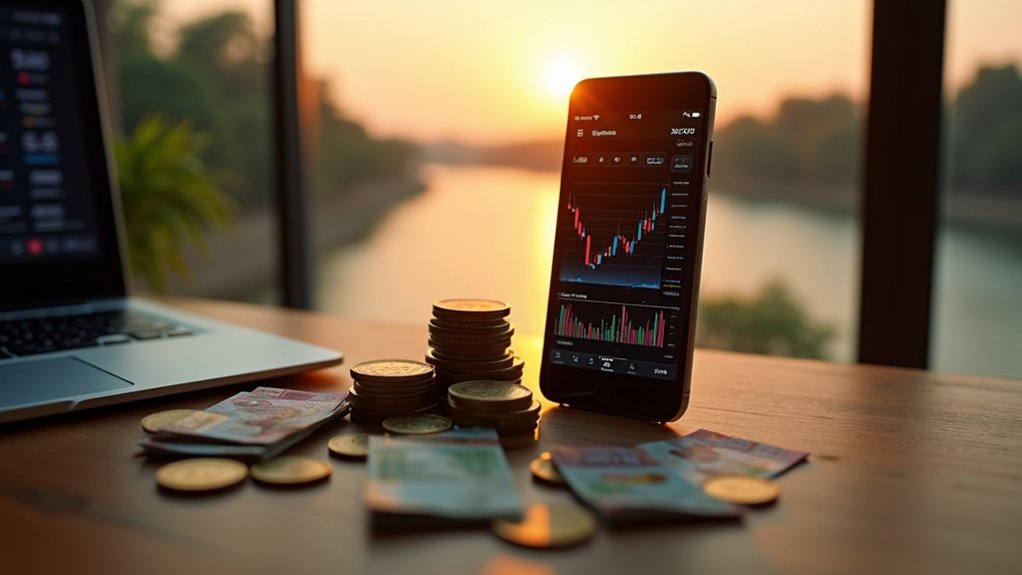
Over the past few years, forex trading has blown up among young professionals in The Gambia. The appeal? Simple. It's the world's biggest financial market—over $6 trillion traded daily. That's massive. The market runs 24/5, so Gambians can jump in anytime.
Since 2016, looser foreign exchange restrictions have made things easier for traders and money changers alike. The country's GDP is projected to grow 3.13% by 2027, thanks to better financial policies. Infrastructure projects like the Trans-Gambia Bridge opening are expected to drive economic expansion. Forex trading involves buying and selling currencies to profit from value fluctuations in this decentralised global market. Understanding regulatory standards is crucial for anyone participating in forex activities. Bottom line: forex has become an accessible way for retail traders in The Gambia to participate in global currency markets without needing institutional backing.
Is Forex Trading Legal in The Gambia?

Yes, forex trading is completely legal in The Gambia. There's no law against it. None.
Forex trading operates in a legal gray zone—permitted by absence of prohibition rather than explicit authorization from Gambian authorities.
The catch? There's also no local regulator watching over it. The Central Bank of The Gambia doesn't license forex brokers. They're busy with other things—monetary policy, traditional banking, the usual central bank stuff.
So Gambians trade through international brokers. The ones licensed by FCA, CySEC, FSCA.
These foreign regulators provide the security blanket that doesn't exist locally. For example, the FSCA in South Africa oversees forex brokers to ensure market integrity and trader protection. Brokers like Exness hold multiple regulatory licenses that ensure client fund protection and operational integrity.
It's legal but unregulated domestically. A regulatory vacuum. Traders are on their own, relying entirely on whatever overseas authority their chosen broker answers to.
Who Regulates Forex Trading in The Gambia?

Nobody's watching. The Gambia has no dedicated forex regulator. The Central Bank of The Gambia oversees monetary policy and exchange rates—that managed float system where the Dalasi bounces around based on supply and demand—but it doesn't license or supervise forex brokers. Zero. Which means Gambian traders rely entirely on international brokers regulated by the FCA, CySEC, or ASIC.
That's the framework. Things loosened up in 2016 when forex restrictions eased, opening the market to more participants. Now? It's a free-for-all. International brokers operate legally through foreign licenses. The CBG has held consultative meetings with banks, Money Transfer Operators, and Foreign Exchange Bureaux on operational issues, but this focuses on institutional forex operations rather than retail trading oversight. Like other central banks in the region, the CBG focuses on monetary strategies affecting exchange rate stability rather than policing retail trading platforms. Domestic oversight of retail forex trading simply doesn't exist.
How Forex Trading Works in The Gambia
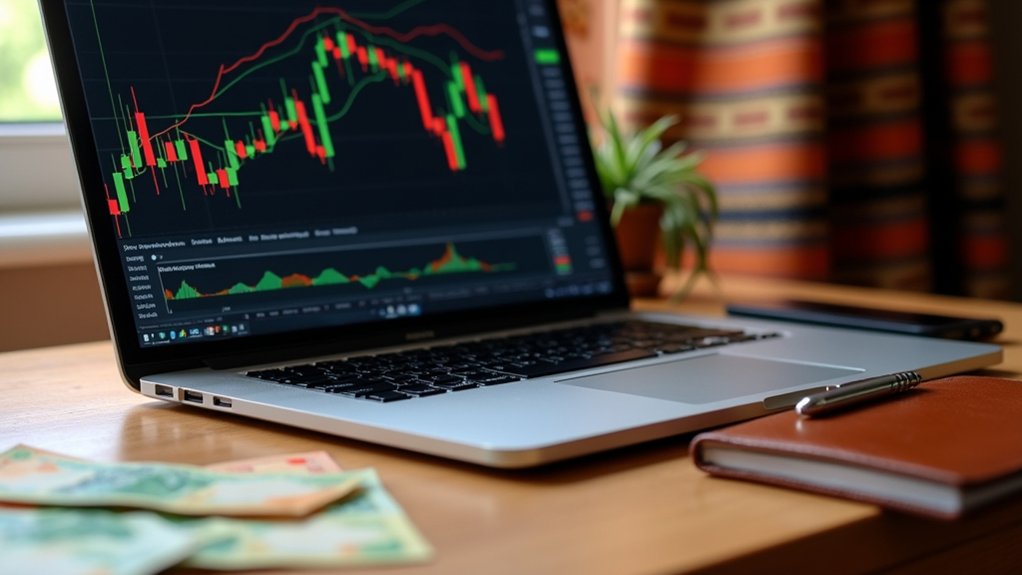
Retail forex trading in The Gambia runs on borrowed money. That's leverage—the mechanism letting traders control positions far larger than their actual capital.
A Gambian trader deposits modest funds, then accesses global currency pairs through online platforms like MT4 or MT5. The broker provides the leverage. The trader picks a pair, clicks buy or sell, watches prices move.
Profits get withdrawn in local currency. Losses eat the deposit fast.
No central exchange exists—just brokers connecting retail accounts to liquidity providers. It's decentralized, operates 24/5, and moves over $6 trillion daily.
Each currency pair quotes a base and quoted currency—the first representing what you're buying or selling, the second showing the price.
Brokers require regulation from the Central Bank of Gambia or an international financial authority to operate legally. Consider trading platform features alongside regulatory status when evaluating broker options.
Simple mechanics. Brutal outcomes.
Best Time to Trade from The Gambia

Timing matters when markets run twenty-four hours and traders sleep in GMT. The Gambia sits directly on GMT, which simplifies everything. London opens at 7am local time, commanding fifty percent of global volume. New York follows at 1pm. The golden window? 1pm to 4pm when both sessions overlap. EUR/USD and GBP/USD pairs deliver maximum liquidity then.
Tokyo runs midnight to 9am for night owls. Sydney starts at 10pm. Most Gambians ignore Sydney entirely. The London-New York overlap produces the highest volumes, tightest spreads, and actual trading opportunities worth mentioning. Different currency pair combinations show distinct liquidity patterns depending on which trading sessions align with their respective markets.
Payments, Deposits and Withdrawals in The Gambia
Without a credit card, a Skrill wallet, or a bank willing to wire dollars overseas, forex trading remains theoretical.
Most brokers accept $5 to $50 minimums. Some want $100. A few demand $1,000. Payment rails include Neteller, PayPal, crypto, and MPESA. Withdrawal fees? Zero at Fusion Markets, Exness, and Axi. Others charge nothing too.
Demo accounts let traders practice without risking cash—Pepperstone and FP Markets offer them free.
AvaTrade (Official Site 🔗) offers trading conditions tailored for African markets, including multiple deposit methods that work across the continent.
The Gambia's forex market hit $1.3 billion in early 2025. That's actual volume. Real money moving through platforms, not aspirational marketing copy.
Taxes, Reporting and Money Rules in The Gambia
At the intersection of forex profits and government coffers, Gambian traders face a blank slate. No clear tax rules. No reporting requirements anyone can cite with confidence. No published guidance from regulators on how to handle forex income. The Central Bank of The Gambia hasn't issued trader-specific directives. Tax codes don't spell out capital gains treatment for currency speculation. Anti-money laundering rules exist somewhere in theory, but practical application to retail forex remains murky. Traders operate in a regulatory fog.
Some declare profits as general income. Others don't. The government hasn't clarified, and traders are left guessing. While neighboring Ghana's central bank actively uses monetary policy tools and regulatory functions to stabilize its currency in the foreign exchange market, The Gambia's institutional framework for forex trading remains underdeveloped.
Forex Trading Scams and Risks in The Gambia
How does a trader tell the difference between a real broker and a well-dressed thief? It's harder than it sounds.
Fake brokers build slick websites. They answer phones. They look regulated—forged licenses and all. Some promise guaranteed profits. Others disappear when withdrawal time comes.
Romance scams escalate into trading coercion. Gambia lacks local enforcement, so international crooks operate freely.
Extreme leverage offerings—sometimes 1:2000—destroy accounts fast. Victims face escalating fee demands disguised as taxes or compliance.
Real brokers hold FCA, CySEC, ASIC, or CFTC licenses. Verify directly on regulator websites. Cease trading immediately if fraud indicators appear. Report everything.
Quick Q and A
Can I Trade Forex in the Gambia Using a Mobile Phone Only?
Yes, Gambian traders can trade forex exclusively via mobile phones using MetaTrader 4, MetaTrader 5, or cTrader apps offered by international brokers like Fusion Markets, AvaTrade, and Pepperstone, which accept Gambian clients and support mobile-only trading operations.
What Internet Speed Do I Need for Forex Trading in the Gambia?
Minimum 15 Mbps download and 2.5 Mbps upload speeds are recommended for forex trading. The Gambia's average 9.81 Mbps falls below ideal thresholds, requiring traders to prioritize stable connections and consider wired internet over mobile data.
Do Gambian Banks Allow Transfers to International Forex Brokers?
Gambian banks maintain standard international transfer protocols and no documented restrictions specifically target forex broker transfers. The Central Bank does not prohibit residents from sending funds to international brokers through conventional banking channels.
Can I Open a Forex Account if I'm Under 18 in the Gambia?
Most forex brokers require account holders to be at least 18 years old due to legal contract requirements. The Gambia's specific age restrictions are unclear, but international platforms serving Gambians typically enforce the 18-year minimum for retail trading accounts.
Which Currency Pairs Are Most Profitable for Gambian Traders?
EUR/USD and USD/JPY offer the highest profitability due to tight spreads and strong liquidity. USD/GMD provides local market familiarity. High-volatility pairs like GBP/AUD and USD/ZAR present profit opportunities but require experienced risk management skills.
The Bottom Line
Forex trading in The Gambia exists in a gray zone—technically possible, practically difficult, legally murky. No local regulation means no protection. Payment methods are clunky. Scams are everywhere. The infrastructure just isn't there yet. Some traders make it work through mobile money and crypto workarounds, but they're steering without a map. For most Gambians, forex remains more aspiration than reality. The enthusiasm is real. The obstacles? Even more so.
